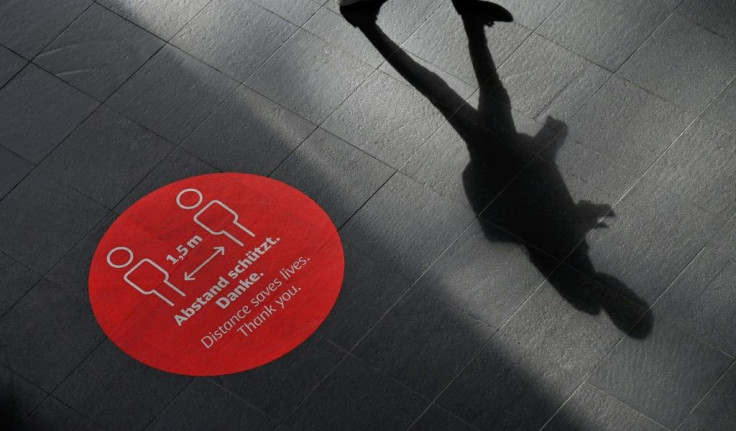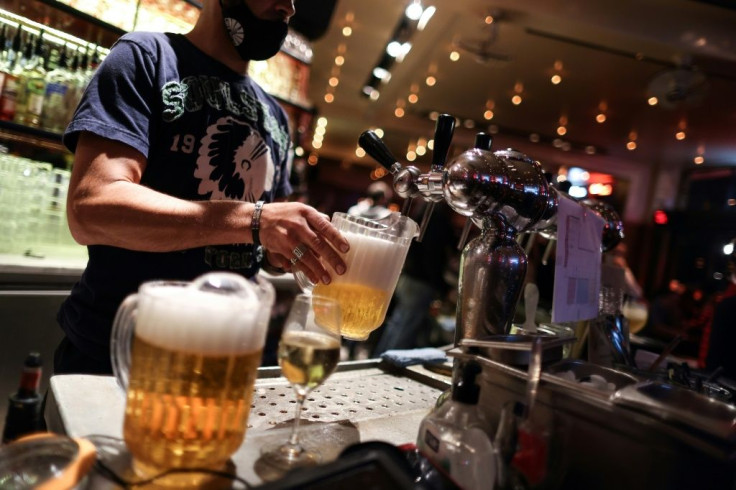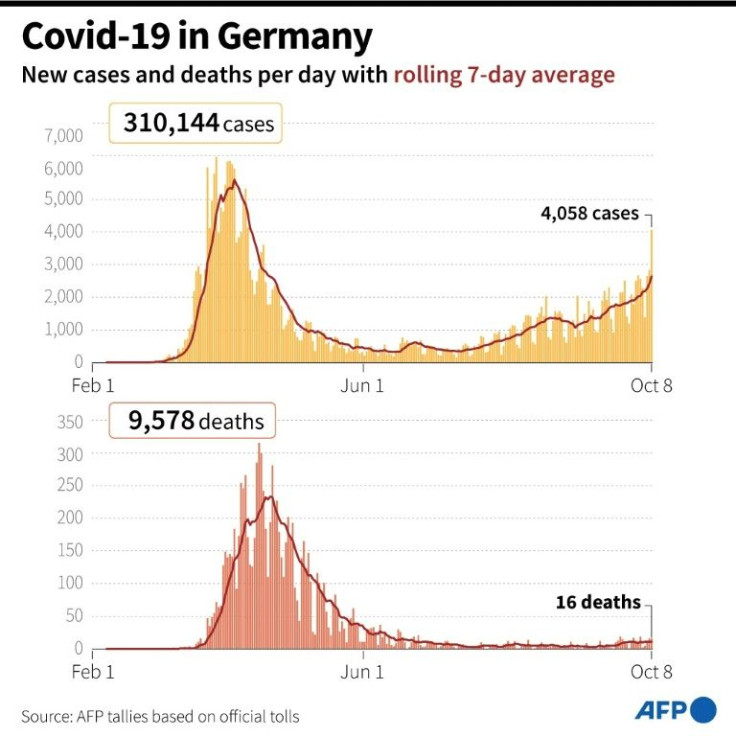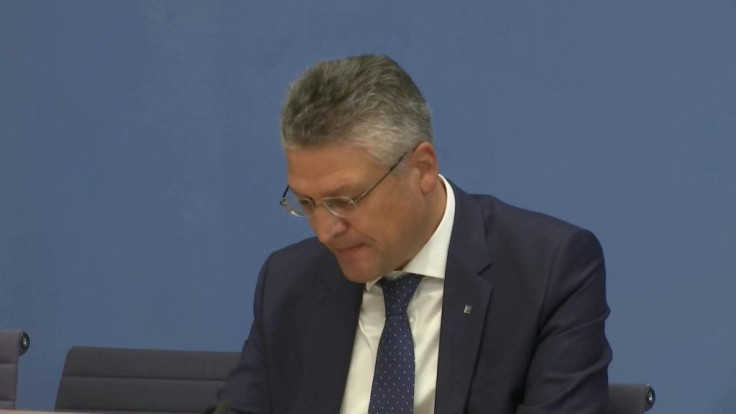Spanish Capital Rejects Lockdown As Europe Faces Virus Surge
Madrid's top court on Thursday struck down virus restrictions on millions in the Spanish capital, as European governments battle to control a sustained surge in virus cases.
While people across France and Belgium face closed bars and cafes, countries including Austria and Poland are toughening their rules on mask wearing and other measures.

Records for the number of daily infections are tumbling across the continent, even Germany -- widely praised for its handling of the crisis -- which logged more than 4,000 new cases in a day for the first time since April.
"It's possible that the virus will spread uncontrollably," said Lothar Wieler, the head of Germany's Robert Koch Institute for disease control.

Spain's anti-virus strategy was thrown into confusion on Thursday when judges refused to approve a lockdown order, arguing that the central health ministry had acted beyond its powers in imposing the measures because health policy is devolved to local governments.
Officials scrambled to get back on track, pleading with residents not to leave the city despite the court ruling, but police have no legal grounds for issuing fines for non-compliance and the order is in effect void.


The usual cut and thrust of political campaigning in the United States has already been scratched from this year's presidential election contest thanks to coronavirus -- no battle-buses or baby-kissing for President Donald Trump and challenger Joe Biden.
The pair did manage to hold one televised debate, but organisers have insisted that the second one is held online following Trump's positive test and hospitalisation for Covid-19.

While Biden said he looked forward to "speaking directly to the American people", Trump accused organisers of trying to protect his rival. "I'm not going to do a virtual debate," he said on Thursday.
The disease has killed more than 210,000 in the US, the worst affected country.
Both contenders are over 70 years old, putting them in a high-risk category.

At the other end of the age scale, Germany's health minister sought to explain his country's upsurge in cases by pointing the finger at young people.
They are "partying, travelling, thinking they are invincible", said Jens Spahn, "but they're not". He urged young people to think of the potential harm they were doing to older relatives.
Germany's jump in cases has coincided with autumn school holidays in many parts of Germany, prompting calls from Chancellor Angela Merkel's government for citizens to avoid travel abroad.
The Spanish court intervention adds another layer of complexity to the already tricky task of judging the severity and duration of restrictions and lockdowns, which have battered the world economy.
The IMF on Thursday joined the debate, warning that lifting restrictions was no guarantee of an economic rebound, and that voluntary measures could be just as damaging to the economy as enforced restrictions.
No European country has yet taken the plunge into a second national lockdown, most governments choosing instead to impose local restrictions or target particular sectors.
Crowded bars and cafes in Belgium's capital Brussels have been ordered to close for a month in a return to the stricter protocols imposed at the height of the epidemic in March and April.
In neighbouring France, officials were set to apply tighter restrictions in several major cities, two days after a maximum alert protocol went into force in Paris.
Bars and restaurants in the French capital were ordered to close on Tuesday for two weeks, as the daily tally of new cases creeps towards 20,000.
Scotland imposed a two-week ban on pubs in its main cities of Glasgow and Edinburgh on Wednesday, increasing pressure on Prime Minister Boris Johnson's UK government to take similar steps in England.
© Copyright AFP 2024. All rights reserved.





















